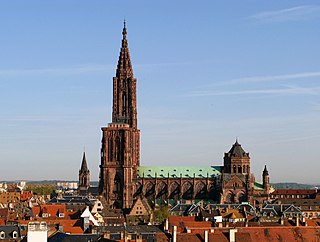
Strasbourg is the prefecture and largest city of the Grand Est region of eastern France, in the historic region of Alsace. It is the prefecture of the Bas-Rhin department and the official seat of the European Parliament.

The Cannes Film Festival, until 2003 called the International Film Festival, is an annual film festival held in Cannes, France, which previews new films of all genres, including documentaries, from all around the world. Founded in 1946, the invitation-only festival is held annually at the Palais des Festivals et des Congrès. The festival was formally accredited by the FIAPF in 1951.
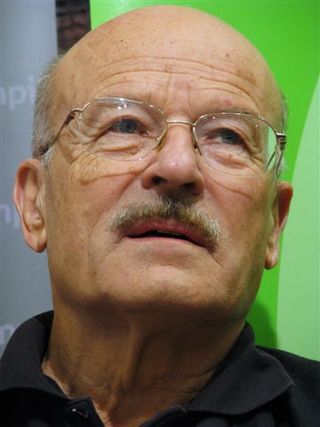
Volker Schlöndorff is a German film director, screenwriter and producer who has worked in Germany, France and the United States. He was a prominent member of the New German Cinema of the late 1960s and early 1970s.

Barbara Sukowa is a German actress of screen and stage and singer. She has received three German Film Awards for Best Actress, three Bavarian Film Awards, Cannes Film Festival Award for Best Actress, Venice Film Festival Award, as well as nominations for European Film Awards, César Awards and Grammy Awards.

The November 1918 insurgency in Alsace–Lorraine is a series of events which occurred when the region of Alsace–Lorraine passed from German to French sovereignty at the end of World War I. During this month, international events were linked to domestic troubles, particularly the German Revolution.

The 56th Cannes Film Festival took place from 14 to 25 May 2003. French opera and theatre director, filmmaker, actor and producer Patrice Chéreau was the President of the Jury for the main competition. Monica Bellucci hosted the opening and closing ceremonies.
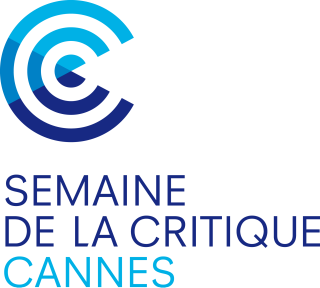
Critics' Week, until 2008 called International Critics' Week, is a parallel section to the Cannes Film Festival organized by the French Syndicate of Cinema Critics. It was created in 1962, after the French Syndicate of Cinema Critics's successful campaign for Shirley Clarke's The Connection to be screened at the 1961 Cannes Film Festival. It is the oldest non-official Cannes sidebar.

The Archdiocese of Strasbourg is a Latin Church ecclesiastical territory or archdiocese of the Catholic Church in France, first mentioned in 343 AD.

The 24th Cannes Film Festival was held from 12 to 27 May 1971. The Palme d'Or went to The Go-Between by Joseph Losey.
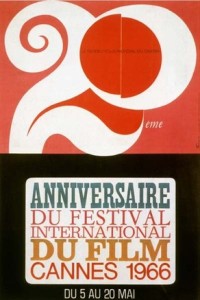
The 19th Cannes Film Festival was held from 5 to 20 May 1966. To honour the festival's 20th anniversary, a special prize was given.

The 20th Cannes Film Festival was held from 27 April to 12 May 1967. The Grand Prix du Festival International du Film went to the Blowup by Michelangelo Antonioni. The festival opened with J'ai tué Raspoutine, directed by Robert Hossein and closed with Batouk, directed by Jean Jacques Manigot.

The 32nd Cannes Film Festival took place from 10 to 24 May 1979. French writer Françoise Sagan served as jury president for the main competition.

The 41st annual Berlin International Film Festival was held from 15 to 26 February 1991. The festival opened with Uranus by Claude Berri.
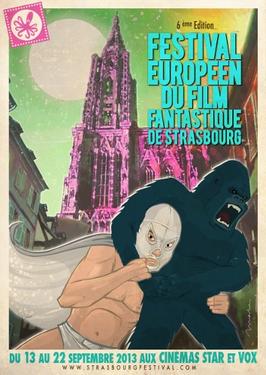
The Strasbourg European Fantastic Film Festival (SEFFF), is an annual film festival held in Strasbourg, France, that focus on fantasy, science fiction and horror films. The festival takes place annually in September since 2008, it derives from the Spectre Film Festival that was created in 2005 by the organization Les Films du Spectre.

Grand Est is an administrative region in northeastern France. It superseded three former administrative regions, Alsace, Champagne-Ardenne and Lorraine, on 1 January 2016 under the provisional name of Alsace-Champagne-Ardenne-Lorraine, as a result of territorial reform which had been passed by the French Parliament in 2014.

The Palais des Fêtes is a music venue in the Neustadt district of Strasbourg, in the French department of the Bas-Rhin. Built for the male choral society of Strasbourg in 1903, it has served as the principal concert hall of the city and home to the Orchestre philharmonique de Strasbourg until 1975. It has been classified as a Monument historique since 2007.
Baal is a 1970 German television film directed by Volker Schlöndorff. It is based on the 1923 play Baal by Bertolt Brecht. The film disappeared after Helene Weigel, Brecht's widow, saw it on television and demanded that it no longer be shown. Ethan Hawke asked Schlöndorff about seeing the film at the Cannes Film Festival, but Schlöndorff replied that he did not know where it was. Eventually the film was discovered in rusty, unmarked cans filed under S. At that point, the film was restored. It was given its first home video release by Criterion in 2018. The film did not make the 1919 play a period piece, and some of the interiors featured intentionally over-the-top colors. It was the first film Dietrich Lohmann shot in color. Margarethe von Trotta was the first actor cast. Fassbinder joined for the title role after Schlöndorff's first choice was unavailable. Much of the supporting cast and crew came from Fassbinder's company, whom he did not want to be put out of work by his absence.

The Regional Council of Grand Est, formerly the regional council of Alsace-Champagne-Ardenne-Lorraine, is the deliberative assembly of the region of Grand Est. Jean Rottner of The Republicans (LR) is the current president of the regional council. He was elected on 20 October 2017, following the retirement of Philippe Richert on 30 September 2017.

The Departmental Council of Bas-Rhin was the deliberative assembly of the French department of Bas-Rhin. Its headquarters were in Place du Quartier Blanc in Strasbourg.

The Departmental Council of Haut-Rhin was the deliberative assembly of the French department of Haut-Rhin. It included 34 departmental councillors from the 17 cantons of Haut-Rhin. Its headquarters were in Colmar.


















